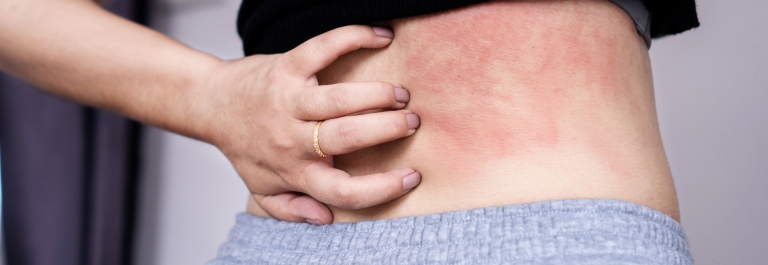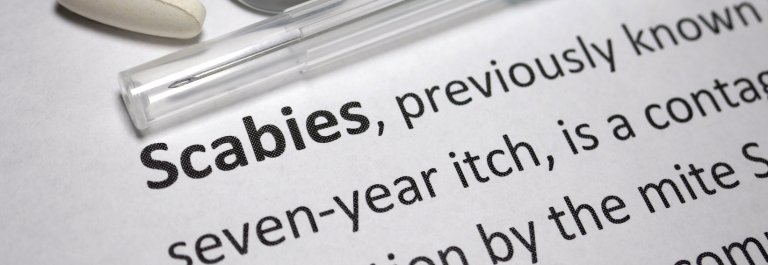Peeling skin can be uncomfortable, alarming, and sometimes even painful. Whether it’s due to dryness, allergic reactions, or an underlying condition, it's important to understand what’s causing your skin to peel and how to treat it effectively.
In this blog, we’re going to explore:
-
The most common causes of peeling skin and what they might signal about your health
-
Natural and effective treatments that soothe skin irritation and support healing
-
When peeling skin may point to something more serious - and when to see a doctor
Read on to find relief and support your peeling skin naturally.
What Causes Skin Peeling?
Peeling skin, medically referred to as desquamation, is when the outer layer of the skin - the epidermis - sheds off due to irritation, inflammation, or direct damage. While sunburn is one of the most well-known causes, a wide range of health conditions, infections, and medications can also lead to skin peeling.
In most cases, peeling skin is triggered by:
Dry skin
Environmental factors like cold weather, hot water, and low humidity can strip the skin of its natural oils, leading to dryness and peeling.
Allergic reactions or contact dermatitis
Exposure to allergens, harsh chemicals, or irritating skincare products can cause inflammation and a skin reaction that leads the skin to peel.
Skin conditions
Eczema, psoriasis, seborrheic dermatitis, and atopic dermatitis are chronic conditions that often involve flaking and peeling.
Infections
Fungal infections like tinea pedis (athlete’s foot), bacterial infections such as staphylococcal scalded skin syndrome, and viral illnesses can all cause the skin to peel.
Certain medications
Topical medications, including acne treatments and topical corticosteroids, may cause skin peeling as a side effect, especially when overused.
Other potential causes include toxic shock syndrome, scarlet fever, kawasaki disease, and rare genetic disorders like peeling skin syndrome. In rare cases, peeling may be a sign of a more serious health condition, such as kidney disease or skin cancer.
Natural and Effective Treatments for Peeling Skin
We believe in supporting your skin with gentle, natural remedies that nourish rather than irritate. Here are some home remedies and natural treatments that may help relieve peeling and itching, without relying heavily on harsh medications.
Moisturize with Hypoallergenic Skincare
Dry skin is one of the most common causes of peeling. Our Nourish + Hydrate Manuka Balm is the perfect choice for moisturizing dry, sensitive or eczema-prone skin. Enriched with raw Manuka honey, sunflower oil, and camellia seed oil, it deeply hydrates while supporting a healthy skin microbiome with natural postbiotics. With its buttery-soft texture and eco-friendly packaging, this balm delivers lasting comfort - without irritation.
Avoid Hot Water
Hot water can strip away the skin's natural oils, leading to dryness, irritation, and increased peeling - especially in sensitive conditions like eczema or peeling skin syndrome. Instead, use lukewarm water when bathing or washing to help preserve the skin’s protective barrier. This simple switch can reduce flare-ups and support healing for compromised skin. We recommend showering with this Sulfate-Free Shampoo Bar which is infused with nourishing botanicals, leaving hair soft, shiny, and healthy-looking.
3. Choose Gentle, Natural Soaps
Many conventional soaps contain sulfates and synthetic fragrances that can cause skin to peel or trigger flare-ups. Instead, opt for something nourishing like our Gentle + Balanced Coconut and Sunflower Oil Soap Bar, made with coconut oil, shea butter, and sunflower oil to cleanse while moisturizing. It’s perfect for sensitive skin, eczema, and psoriasis, and safe enough for babies and kids. With no added fragrance, it leaves behind a naturally clean, light scent.
4. Avoid Triggers and Known Irritants
Try to identify any direct contact allergens, harsh skincare products, or certain medications that may be contributing to the issue. Even “natural” products can be irritating for some people - always patch-test and choose formulations with minimal ingredients.
When Peeling Skin Is a Cause for Concern
While most cases of peeling skin resolve with at-home care, sometimes it signals something more serious. Watch for concerning symptoms like:
-
Intense swelling, pain, or signs of infection
-
Widespread peeling across the whole body
-
Blisters, rashes, or red patches that don’t go away
-
Peeling accompanied by fever, fatigue, or other systemic symptoms
These may be signs of an underlying health condition or severe skin syndrome such as toxic shock syndrome, scarlet fever, or kawasaki disease. If you notice these symptoms, consult a doctor or dermatologist as soon as possible.
Soothe Peeling Skin Naturally and Effectively
Peeling skin can stem from a variety of factors - from dryness and allergies to more serious infections or syndromes. Thankfully, in many cases, natural, nourishing treatments can help relieve the discomfort and restore the skin’s protective barrier.













